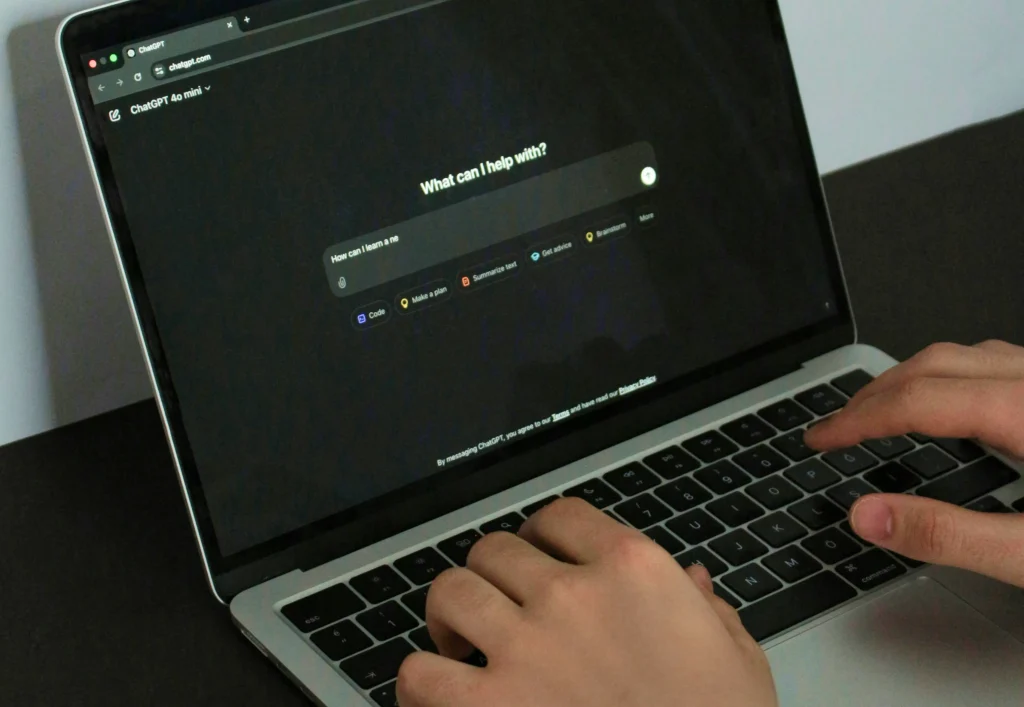How to encourage mindfulness in the workplace
Mindfulness is the practise of staying consciously present in what you’re currently doing, as well as consistently working on calming your mental and emotional state.
Table of contents
What is mindfulness and how is it relevant in the workplace?
‘Mindfulness’ has become a buzzword in the past few years. More companies and organisations popping up to try and help us all become more intentionally present in the moments we are in.
Headspace, followed by a wave of other platforms, have tried to keep us “focused on focus”, to take care of ourselves up in our minds, not just in our body’s.
Seeing as we spend the majority of our time working, does it make sense to bring this new awareness to our desks? Should organisations think about having a dedicated member of the team to promote mindfulness and keep an eye on our mental health in general? This would probably help with avoiding things like burnout or extreme stress. They might also be able to implement practices to help us work smarter, and get to know what our minds need to do our jobs as best we can.
Below we’ll discuss:
- What a mindfulness officer does
- The skillset of a mindfulness officer
- How you can build a mindfulness strategy
How important is mindfulness?
Without mindfulness, our brains can easily settle into negative-thought-loops and worst-case scenarios. This can be useful and serve a purpose for recognising issues or blockers in our work. However, it’s all too easy to feel like we’re trapped in a cycle, which can then escalate to extreme stress and constant worry.
When we’re feeling like this, it affects our interactions, relationships, daily outlook, and the way we view our situations and short-term futures. Tackling this might sound like a large task, but it’s easier than it sounds.
Research at companies such as Google, Intel and Aetna shows that mindfulness in the workplace can decrease stress levels, and improve focus, decision-making, how thoughtful people are towards colleagues and overall mental wellbeing.
Mindfulness will give your team members the space and opportunity they need to think and make thoughtful decisions, instead of feeling overwhelmed by a time-sensitive situation. This leads to resilience, mental agility and self-awareness, which can contribute to their personal lives too.
Working on mindful practices in the office can reduce tiredness, and increase things like empathy and compassion. It can also encourage things like openness to new ideas and creativity.
In terms of recruitment, having a mindfulness officer on board, or at least being aware of the practices and advantages it can bring to your organisation, will make your job offers more attractive and give you an advantage over the competition.
Plus, once you have a collection of new talent that is focused on improvement in this way, you’ll have a more focused workforce who will be able to make better decisions, have a more creative mindset, and meet goals faster.
Sounds great, right?
So, what does a Mindfulness Officer actually do?
A mindfulness officer will be able to strategically incorporate mindful and awareness strategies into an organisation. They will have an in-depth understanding of how these practices and tools can help individuals have a greater impact. They can focus on how changing an individual’s mindset can positively impact the entire organisation’s KPIs and long-term goals.
Some main focuses of a mindfulness officer include:
- Prevent and recognise the symptoms of burnout.
- Improve team dynamics and the way in which people interact with one another.
- Help product teams to improve features for users.
- Work with researchers and conduct user interviews.
- Develop a stronger company culture.
- Improve employee retention rate.
- Assist in mental wellbeing and improve employees work/life balance.
Whichever strategy you focus on within your organisation will be where you grow and develop the fastest. Having a strategy for improving the mindfulness of your entire team will put the concrete foundations together for a smarter overall working organisation and happier team members.
You will also notice that the focus on specific customers or target audiences will be better defined as you’ll have a dedicated team member who has a good understanding of personality types and personal development.
Skill sets of a mindfulness officer
Here are some skill sets to look out for if you’re looking for someone within your team to take care of promoting awareness throughout the organisation, or if you’re looking to hire a dedicated person:
- Is accountable and responsible.
- They value clarity in decision-making instead of relying on speed.
- They are adaptive, compassionate and empathetic.
- They are motivated and passionate about helping people.
- They work well with change and encourage innovation.
- They understand what burnout is and already prevent it in their teams as well as themselves.
How can you build a mindfulness strategy within a growing organisation?
If you’re thinking about putting a focus on your people and hiring a mindfulness officer you might find, at first, that it’s beneficial to hire someone on a part-time basis. As your organisation grows, and you see positive results you could then increase the number of hours your officer works.
Set up a mindfulness challenge
You can organise and send out articles, videos and workshops to help with the awareness of mindfulness. Each week, you can set a different challenge for your team.
Maybe taking part in collective or individual meditation lessons, or setting up a break challenge in which teams should head outside for part of their lunchtimes.
You can also be part of a lunch-and-learn session so that everyone can understand the benefits of being more aware and intentional, as well as the positives of bringing mindfulness into the organisation.
Now, of course, it’s up to the individual – because building better awareness of mindfulness starts on an individual basis. But, you might find that having the knowledge out there will change people’s practises naturally.
Yoga and meditation classes
It’s not unusual for start-ups and growing companies to offer gym memberships or yoga classes at the office, so why not expand this practice to also include your team’s mental health, as well as physical health?
It can do the world of good to take a break from the ever-growing inbox, and the incoming Jira tickets.
Organising meditation classes a few times a month at the office can encourage everyone to take more time in caring for their minds and give a taste of how mindfulness can affect their outlook and perspective.
This will also show that the company as a whole has empathy and compassion, which is great for employer branding! There’s nothing better than knowing that your C-level management is focusing on how everyone can be healthier and happier.
Encouraging time outdoors
As well as organising meditation and yoga classes, it’s also beneficial to encourage your team members to spend some time outdoors during the working day.
This is especially important if it’s a darker time of year, and you understand that your team won’t have the ability to spend hours outside in the good weather after clocking off.
The most beneficial way to do this is to encourage people to take a short outdoor break alone, instead of with their team.
The point of this is to get some headspace and process things internally, instead of spending this time with colleagues and ultimately not having that important quiet time.
Screen breaks
This is probably one of the easiest mindful practices that you can implement for everyone. Encourage your team to take screen breaks – just 5 minutes can increase focus and productivity as well as encourage creative ideas and different perspectives to problems.
Final thoughts
Mindfulness might still be a little controversial, but it sure does have its benefits across your entire organisation.
Simply leading by example can already make a real difference in the attitudes and behaviours of your team.
In the future, it seems like mindfulness will be more widely spoken about and accepted as a tactic to help grow the company, improve employee retention and make a difference in the mental wellbeing of everyone that you’re spending time with.
Hannah Squire
Hannah was a Content Specialist at JOIN. During her time with us, she mostly wrote about improving company culture and building stronger teams.


